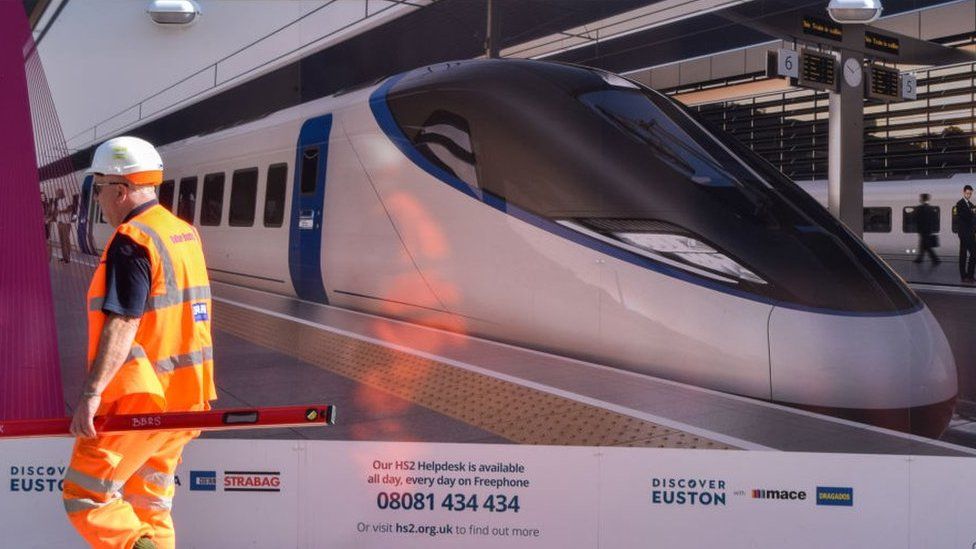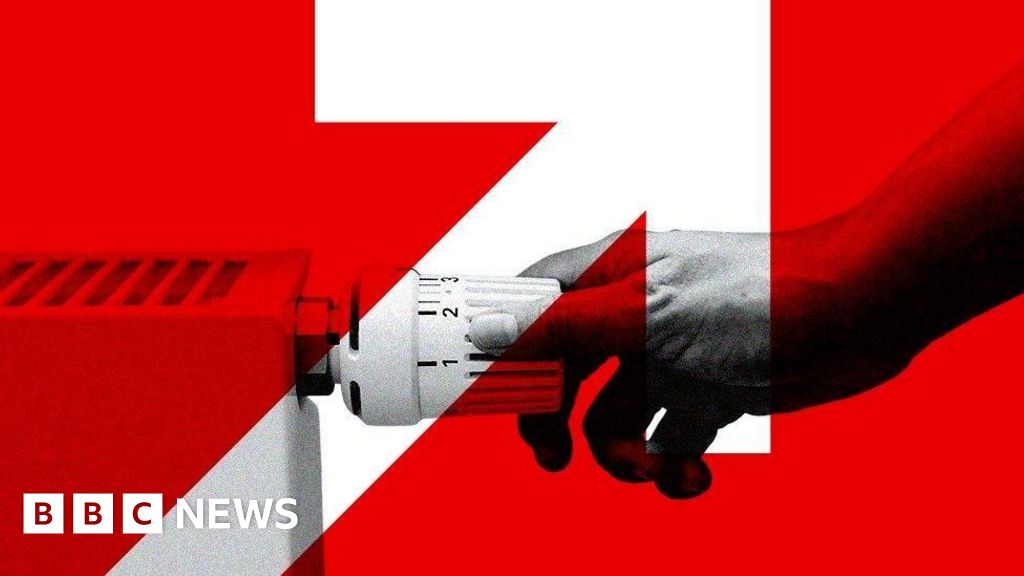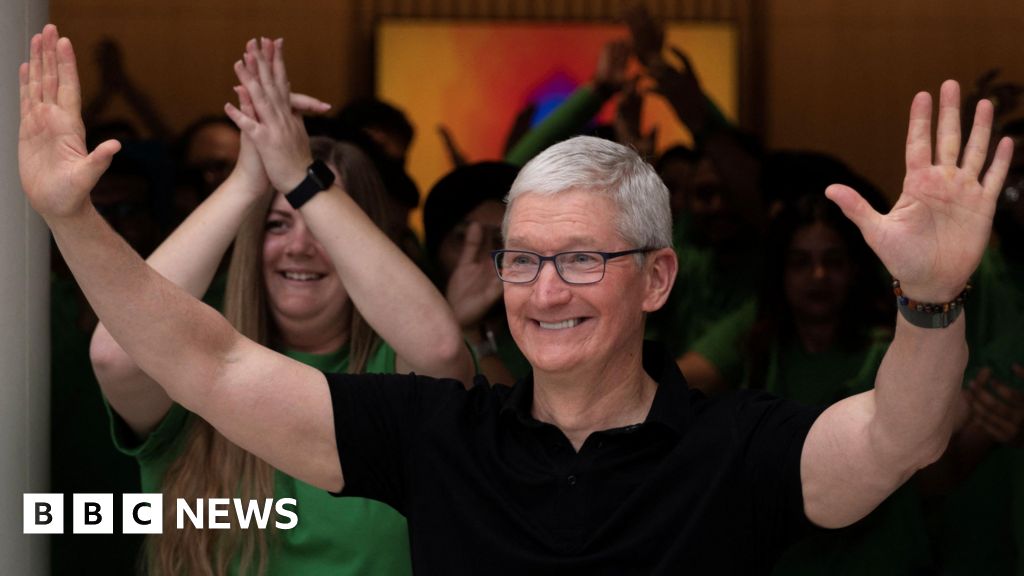ARTICLE AD BOX
 Image source, Getty Images
Image source, Getty Images
A worker walks outside the HS2 construction site at Euston Station in London
The prime minister has pledged billions for transport projects across the country after scrapping the northern leg of the HS2 high speed rail link.
Rishi Sunak said in a speech at the Conservative party conference that £36bn would be spent on alternative rail, road and bus schemes instead.
It came after he confirmed that the Birmingham-Manchester leg of HS2 would be ditched after weeks of speculation.
He said the decision was due to huge costs and long delays.
But it has led to accusations the government is abandoning its mission to "level up" areas of the UK outside of London.
In his speech, Mr Sunak said the government "will reinvest every single penny" saved from cancelling the remainder of HS2, which he said totals £36bn.
"Every region outside of London will receive the same or more government investment than they would have done under HS2, with quicker results," he said, although it is not clear when this money will be made available.
"Our plan will drive far more growth and opportunity here in the North than a faster train to London ever would," he added.
The high speed rail project was intended to link London, the Midlands and the north of England.
The first part, between west London and Birmingham, is already being constructed. Mr Sunak confirmed that it will be completed, given how far along that section is.
But the scheme as a whole has already faced delays, cost increases and cuts - including the planned eastern leg between Birmingham and Leeds which was axed in late 2021.
In March, the government announced that building the line between Birmingham and Crewe, and then onto Manchester, would be delayed for at least two years.
Grant Shapps, the current Defence Secretary and former Transport Secretary, recently said it would be "crazy" not to review plans for HS2 given that costs have risen.
How much has HS2 cost so far?
In his first speech to party conference as prime minister, Mr Sunak said that changes to travel seen after the coronavirus pandemic meant that the economic case for HS2 "has been massively weakened".
The last official estimate on HS2 costs, excluding the cancelled eastern section, added up to about £71bn.
But this was in 2019 prices so it does not account for the rise in costs for materials and wages since then.
In his speech on Thursday, the prime minister said that east-west links were "far more important" than those linking up the north and the south of England.
He said that his plans would see "hundreds" of alternative projects funded, such as:
- Building the Midlands rail hub, connecting 50 stations
- Upgrading the A1, the A2, the A5 and the M6
- Building a Leeds tram system
- Funding the Shipley bypass, the Blyth relief road and 70 other road schemes
- Electrifying train lines in north Wales
- Resurfacing roads across the country
He also said that he would protect £12bn dedicated to linking up trains between Manchester and Liverpool - although this won't be with high speed rail.
Although the prime minister said it would be possible to get from Manchester to Hull in 84 minutes on a fully-electrified line under the new plans, known as "Network North", it is not yet clear what decision has been made on the Northern Powerhouse Rail (NPR) project, which aims to improve connections between Leeds, Manchester and Liverpool.
NPR was originally designed to intersect with HS2, using a section of the high speed line for a complicated section through central Manchester.
Mr Sunak confirmed the HS2 scheme would still run to Euston in central London, rather than terminating at Old Oak Common in the west of the capital, but promised to get a grip on the costs of the project.
The prime minister came under fire from a number of senior Conservatives in recent days, who urged him not to scrap the northern section of the rail link.
Former Chancellor George Osborne said HS2 was "a great opportunity to deliver for northern voters" and cancelling phase two to Manchester "would be a great tragedy".
He added that NPR was not a substitute for HS2 and that both projects "should go ahead together".
In a dramatic intervention on Monday, West Midlands Tory mayor Andy Street said axing the Manchester leg would amount to "cancelling the future" and risk damaging the UK's international reputation "as a place to invest".
Mr Street acknowledged the costs were "escalating" but said he had been working on a new funding model for the project with more private sector involvement.

 1 year ago
27
1 year ago
27








 English (US) ·
English (US) ·